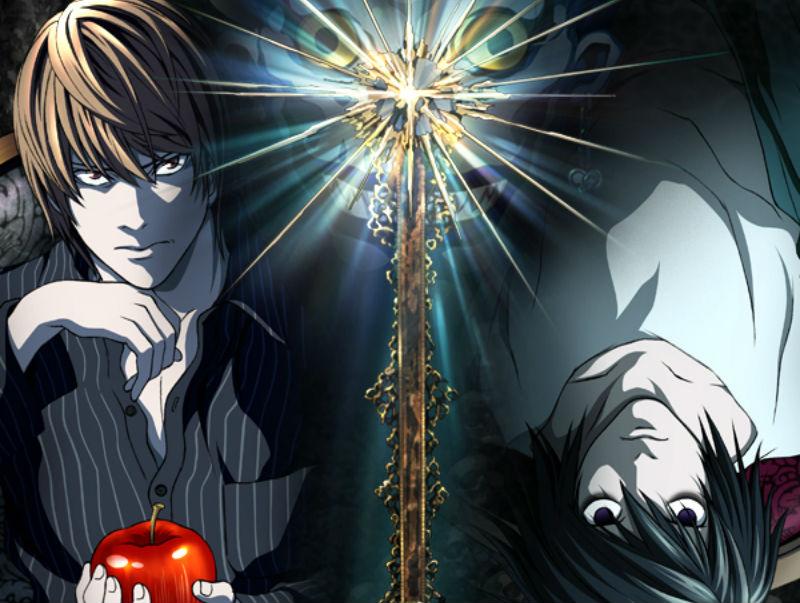
Warning: This article contains spoilers for the TV show 'Death Note.' Finish the series before reading or read on at your own risk.
A green-faced Mozart is spread across his death bed. His rival, Antonio Salieri, hurriedly transcribes the master composer's final musical work, "Requiem Mass in D Minor." A timpani beats louder by the moment. With each passing measure Mozart looks nearer and nearer to death. There is a surging crescendo, then—the music fades as Salieri realizes Mozart has drawn his last breath. The 1984 film Amadeus used "Requiem Mass in D Minor" to quickly translate the complexities of death, greed, and evil to stunning effect.
Music frequently serves to quicken emotional cues in film and TV. In one case, however, it's another "Requiem" that is doing the heavy emotional lifting.
The anime series Death Note debuted on October 3, 2006, on the Nippon Television network in Japan. Since its premiere, it has aired on TV in the U.S. and Canada, and been made available for streaming online, attracting millions of fans around the world. The manga, or Japanese graphic novel, on which the series is based, has sold more than 30 million copies worldwide.
The soundtrack to Death Note has also garnered numerous fans. One piece that stands out as pivotal to the story progression is “Requiem,” composed by Yoshihisa Hirano and Hideki Taniuchi.
Death Note follows the protagonist Light Yagami’s efforts to eradicate all “evil doers” and create a utopian world free of criminals, by using a supernatural notebook in which a person’s death is orchestrated simply by writing their name within its pages.
An orchestral combination of a Roman Catholic hymn and the Mozart composition named above, Hirano and Taniuchi's “Requiem” first appears in the episode “Silence,” when Yagami finally corners and kills his primary rival L. After L’s death, Yagami calls himself “the god of the new world,” as the music plays in the background. He is a god passing judgment on criminals.
Death Note explores the inherent conflict in committing murder in order to ultimately bring about good, and asks whether such acts of evil can be justified based on their outcomes. The series has not been a stranger to controversy: The manga was banned by Chinese censors and the series has been known to inspire imitation “death note” notebooks amongst its teenage fans.
“Requiem” is a mass for the dead world the characters inhabit, and for all the people Yagami has killed. And the composition, like the anime series, highlights the question: What parts of a person die in the process of attempting to eradicate evil from the world?
